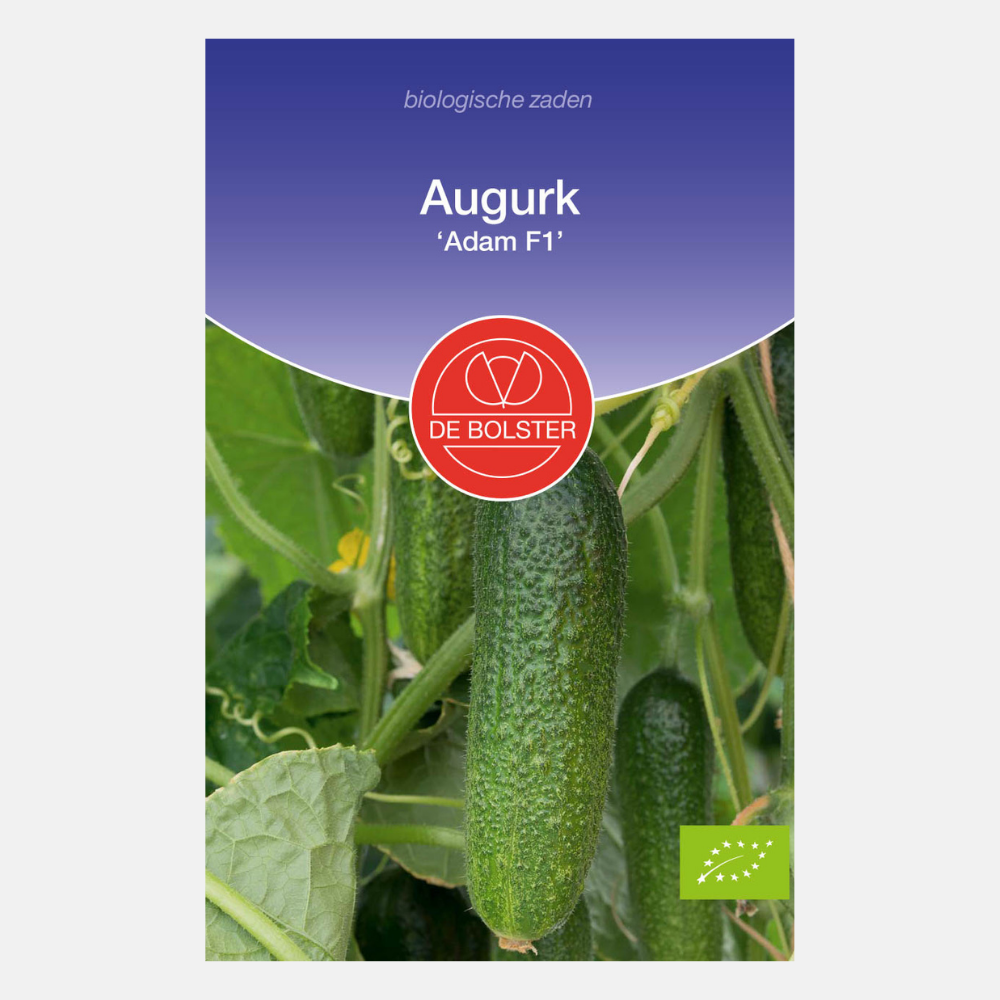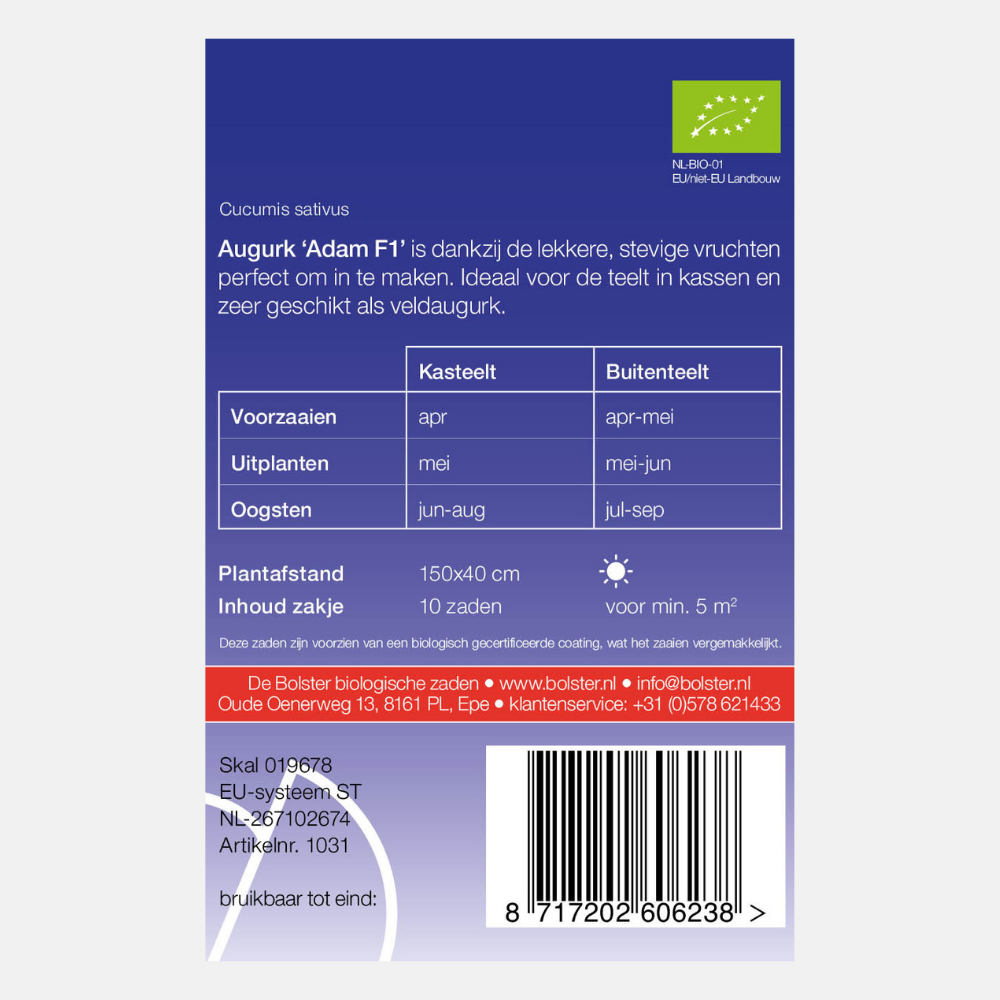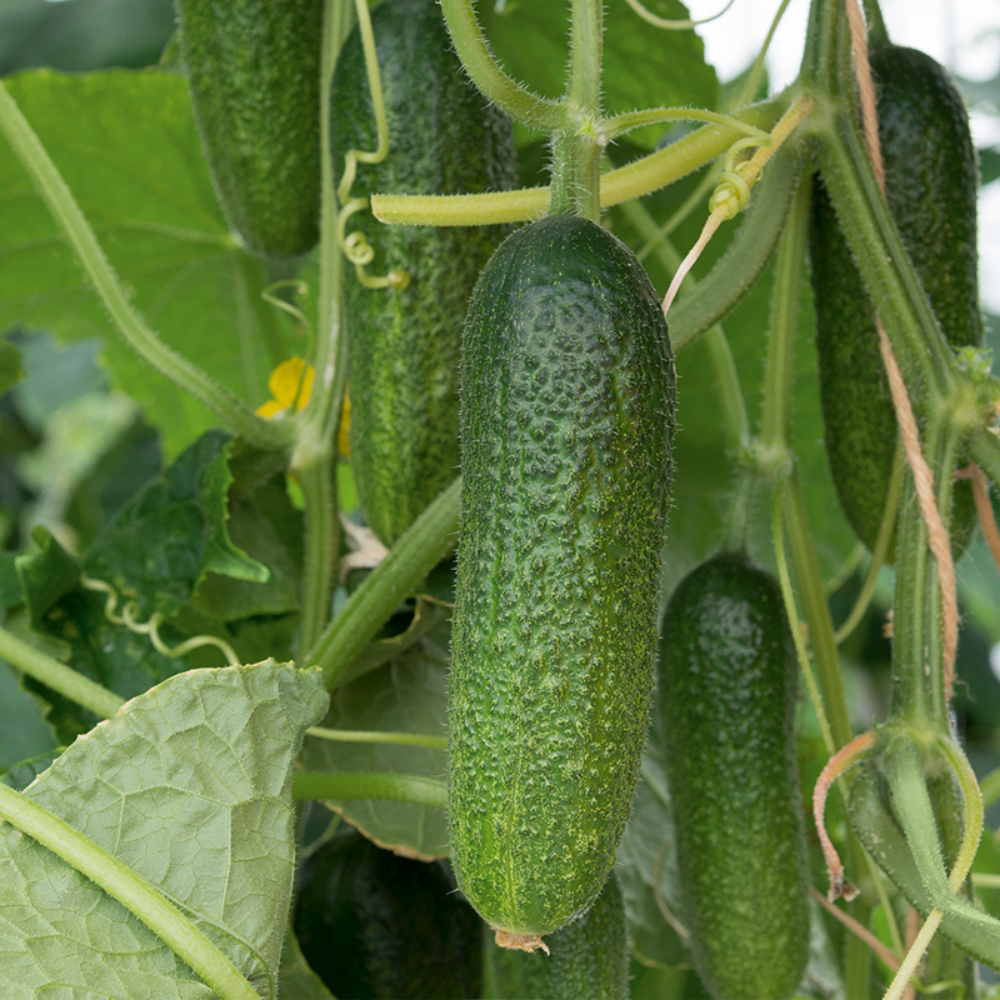Cucumber 'Adam F1' BIO
Cucumber 'Adam F1' is suitable for cultivation in a greenhouse, because the plants do not need pollination. Thanks to the firm and crunchy flesh, this cucumber is ideal for pickling. One bag is for approximately 5m2, and the planting distance is 150x40 cm.
Cucumber 'Adam F1' is an early, vigorous variety and develops beautiful smooth fruits of 7 to 10 cm. The plants do not need pollination, which makes them perfect for growing in a greenhouse. Due to the firm, crunchy flesh, these cucumbers are very suitable for pickling.
Fertilizing is recommended after the first flowering. Repeat this after three weeks and if necessary do this again when there are signs of nitrogen deficiency. Yellowing and bronze of the leaves can indicate potassium deficiency. If the fruits are regularly picked at a young stage, new cucumbers will continuously form. The harvest can then be extended over a longer period.
Castle
Pre-sowing: 4 weeks before planting out. NB: keep the plants frost-free.
Planting out: May
Harvest: June-August
Outdoor cultivation
Pre-sowing: from mid-April, 2-3 weeks before planting out
Planting out: from mid-May to June
Harvest: from July-September, approx. 65 days after planting out
Planting distance: 150x40 cm
- Biologisch
- Yes
- Merk
- The Bolster
- Type en soort
- Hybrid breed
- Standplaats
- Sun
- Zaaien
- April May
- Planttijd
- May June
- Oogst- en bloeitijd
- July August September
- Rijafstand
- 150 cm
- Plantafstand
- 40 cm
- Hoogte
- 300 cm
- Inhoud
- Approx. 10 seeds
Cucumber 'Adam F1' BIO is backordered and will ship as soon as it is back in stock.
Couldn't load pickup availability
Dispatch
Dispatch
We ship your order within 1-2 business days*. When you spend €75,- you get one free shipment. Shipping is possible from €3.95. All orders are shipped as a package with a track and trace code, so you can always follow your order. Read more about the shipping costs in our FAQ.
Delivery time pre-order
Your order will be shipped from the indicated availability date. This also applies if you combine pre-order with products that are already in stock.
*Please note: In some cases this is not the case, such as: pre-orders, chicory roots, trees and small fruit. Read more in our FAQ.
The Bolster
The Bolster
Pioneer in organic seeds
De Bolster has been the specialist in 100% organic seeds for 45 years, with a focus on sustainability and future-proof agriculture. They produce seeds of more than 330 varieties, from vegetables and flowers to green manures, at international locations and completely GMO-free. With organic breeding methods and a commitment to variety freedom, they work together with professional growers and hobby gardeners to make organic cultivation accessible to everyone. Since 2023, they have been operating as a cooperative, to increase the impact of organic farming together with customers and suppliers. Their dream? A healthy planet with 100% organic farming.
Explanation of resistances
Explanation of resistances
Our seeds are provided with different resistance codes. In this PDF you will find a clear explanation of all codes and their meaning.
Different types of seeds
Different types of seeds
What is the difference between organic, F1 hybrid, heirloom (open-pollinated), GMO, pill and conventional seeds? We explain it to you in this blog !
Saving seeds
Saving seeds
Store seeds in a cool, dry and dark place, such as a sealed box in a cupboard. Pay attention to the expiration date on the packaging and use them before that time. If the packaging has been opened, make sure it is sealed properly and check the germination capacity before use.
You can easily test the germination capacity of seeds with a germination test :
- Place a few seeds (for example 10) on a damp piece of kitchen paper.
- Fold the paper towel closed and place it in a plastic bag or place it in a sealed container.
- Place it in a warm place, such as on the windowsill.
- After a few days, check to see if the seeds have started to germinate.
Basic sowing guide
Basic sowing guide
First time sowing? No problem! Our basic sowing guide will briefly explain how to get started. Also take a look at our extensive growing guides for specific tips per plant species - super handy if you want to know exactly how to grow aubergine or garlic, for example 🌱.








